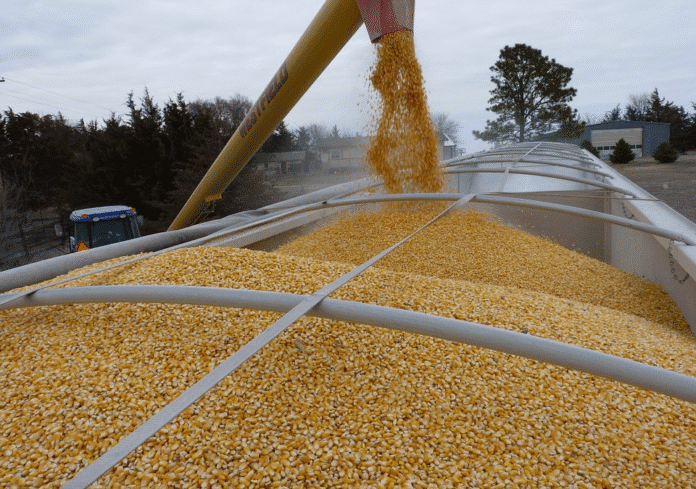BULAWAYO — Zimbabwe’s second-largest milling company, Blue Ribbon Foods, has halted operations at its Bulawayo plant due to an acute shortage of grain on the local market.
The shutdown, confirmed on Monday during a site visit, tells a sobering story that starkly contrasts with the government’s glowing declarations of a national grain surplus.
“We have seven silos outside that hold about 180 tonnes each. They all have been empty since April. We are wondering when they will actually have full capacity again,” said Nqabutho Mkhize, Blue Ribbon’s Sales Coordinator for Matabeleland North, while standing before the idle plant.
At full operation, the milling company runs two shifts a day, employing 34 workers per shift and producing up to 60 tonnes of maize meal daily. But since the last maize consignment was milled months ago, silence has taken over the production floor.
“Right now, all we can do is hope that the situation changes soon so that we return to normal production. Our workers are hanging in the balance,” said Mkhize.
The closure comes in the wake of repeated assurances from the highest offices in government. In May, President Emmerson Mnangagwa confidently declared Zimbabwe was poised for a “bumper harvest” during a Zanu PF Central Committee meeting. His optimism was echoed by lands and agriculture minister Anxious Masuka who cited a cereal harvest of 2.9 million tonnes, well above the national requirement of 2.2 million tonnes.
But the lived reality in Bulawayo and across much of the milling sector paints a different picture.
“We used to get maize locally, easily,” said David Moyo, chairperson of the Grain Millers Association of Zimbabwe (GMAZ) Southern Region. “Now it is hard to fill even a 30-tonne truck. Some days, all we get is two or three 50kg bags. It can take a whole week just to fill one tonne truck.”
The government banned maize imports in June, apparently based on overstated harvest figures provided by the lands and agriculture ministry.
Several other companies, including Sunset Marketing, National Foods, Mathokozisi Milling, and Bulateke Milling, have already either downsized operations or laid off workers due to supply shortages and regulatory hurdles.
“We are asking those in charge to help fill the gap. Right now, these regulations are making a bad situation worse. We don’t want to shut down permanently. We want to feed the nation,” pleaded Moyo.
Trade analysts have warned that Zimbabwe could face a grain shortage within weeks if authorities continue to block maize imports.
Jacques Pieener of Commodity Insight Africa said the government’s reluctance to lift the ban on imports is “political” and could trigger a major food crisis if not urgently reversed.
“If the government does not move with speed to reopen the borders for grain imports, the country will be in the throes of a shortage within weeks,” Pieener said.
“The continued delay is political. Authorities do not want to be seen to be contradicting the president’s claims of a bumper harvest, but the truth is there is no maize in the market. Millers are already running dry, production is grinding to a halt, and unless policy shifts quickly, the next crisis will be shortages and spiralling prices,” he added.
Economist Tinashe Murapata recently claimed that “Zimbabwe’s maize production was around one million metric tonnes and not the 2.3 million metric tonnes the 2025 budget envisaged.”
He added: “The rather big question is how did we get the numbers so flagrantly wrong?”
The continued closure of key milling plants not only threatens urban food security, but also risks massive job losses and skyrocketing mealie meal prices at a time when most households are already battered by inflation and unemployment.
“We are not asking for handouts,” said Moyo. “The private sector is here to complement government efforts. But we need an environment where we can import maize freely and let market forces determine the price. Ultimately, deregulating the maize import framework will lower the cost of mealie meal for consumers. It is not just about the miller but about every Zimbabwean’s right to affordable food.” – ZimLive











